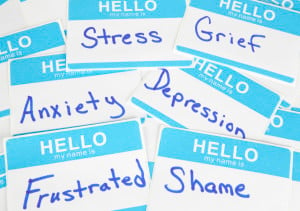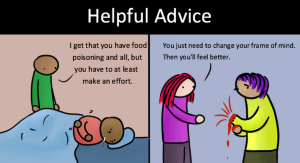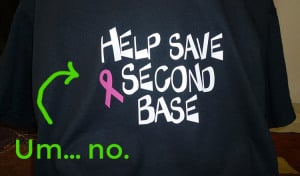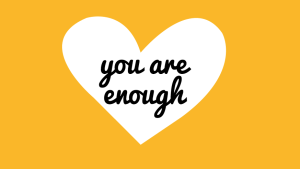
Source: Picky Wallpapers
If you do social justice work – especially if you’re vocal in this simultaneously glorious and frightening world known as The Internet – you’ve undoubtedly suffered your fair share of abuse.
If you’re in a marginalized community, it’s likely come in the form of oppressive violence targeting your identity in an attempt to silence you.
And if you’ve refused to shut up and sit down, I imagine that you, like me, have experienced the terror of death and rape threats.
And if you’ve ever been vocal to your friends and family about your experiences, I’m going to bet that at least once in your life, someone has attempted to placate you by letting you know that “you must be doing something right” if you’re making people angry.
And, okay, I get their point.
Social reform doesn’t come easy. And attempting to affect the fundamental nature of society is, of course, by definition, radical.
I may have a complicated relationship with the word “radical,” but the truth of the matter is that questioning – let alone actively working to upset – the status quo is always going to be radical in nature. Because it makes people uncomfortable.
But there’s a big difference between making people uncomfortable and making them violently angry.
Making people uncomfortable? That’s part of the job. That’s a good sign that you’re doing something right.
People coming at you with death threats? Not the same thing.
And I don’t know about you, but when people apply the “you must be doing something right” band-aid to every instance of my feeling vulnerable and emotional, it has the opposite effect that they hope it will.
It doesn’t feel comforting and inspiring. It actually feels kind of trivializing – and even silencing.
So here are some reasons why you might want to drop “you must be doing something right!”
1. It Isn’t Necessarily True
I do values clarification-based education for a living. My job, day in and day out, is to run workshops where I challenge people to question their most deeply held beliefs around sexuality and relationships.
Facilitating affective learning is a skill – and it’s a hard one. It involves very consciously and deliberately bringing people to the edge of their comfort zones to offer them alternative perspectives. It also means (at least externally) withholding judgment, which includes in its bag of tricks a very practiced poker face.
Now, if I do my job correctly, people will walk out of my workshops with a little bit of anxiety and a whole lot to think about. They should leave there feeling challenged, but safe. They should feel that their worldviews were respected while also engaging in different viewpoints.
But sometimes that’s not what happens.
Sometimes I get that one student on an already stressful day who continually disrupts my lesson to assert their belief that – most commonly – people who stay in abusive relationships must like being abused or there are conditions under which people cannot say no to sex.
And sometimes when this student really grates on my nerves, I can lose my cool and say something snarky or otherwise assert my dominance as the leader in the room. It happens rarely, but it happens.
And that is the point at which I have failed.
Because that student is going to walk away having learned nothing except that the lady who came to their class to talk about domestic violence can’t follow her own ground rules around respecting others’ opinions.
In the case where someone feels unfairly disrespected by me, I have not “done something right.” If anything – and trust me, my supervisor would agree – I have done something wrong. And telling me that turning what could have been a teachable moment into a power struggle was appropriate actually isn’t helpful.
Look. We’re all human, and we are all expected to have these days where the weight of the world is simply too much to bear and we take it out on someone whose comment is our last straw, but that is not an indication that we have done something right.
It’s simply an indication that our work is still desperately needed.
Bringing people past the brink of discomfort is not what most of us are setting out to do – certainly not if we’re trying to affect real change.
And telling us that we “must be doing something right” just because we got into a verbal scuffle with someone diminishes the good, hard work that activists and educators are doing every day.
Instead, try this: “It sounds like you had a really rough day today. I’m sorry that that conversation escalated to a place that made both of you angry. The work that you do is greatly valuable and necessary – as is evident by this story. I’m glad you’re out there in the trenches. If you need anything, let me know.”
2. It’s Misunderstanding the Issue
I have friends – many of you are probably reading this now: hi! – who I greatly respect who sometimes I have huge disagreements with. Sometimes the articles that I share on Facebook become battlefields where groups are pitted against one another, trying to prove their points.
And we get passionate. And we get frustrated. And probably for a little while, we’re not one another’s biggest fans.
But then we calm down, we remember how awesome one another is, and we agree to disagree.
This can happen with strangers, too.
Sometimes people really do want to engage with you intellectually, even if the two of you completely disagree. Sometimes people really are looking for a debate, rather than a fight. And if you find those people hovering in your Twitter mentions, it’s okay to engage with them.
A conversation can be passionate without being threatening.
And while you might feel frustrated or misunderstood for a little while, usually these conversations don’t end in your feeling scared or dejected. They don’t inspire subtweets or venting text messages to your activist friends.
These aren’t the conversations we’re referring to when we go on a rant.
These are conversations that you expect and even sometimes invite. I – as naive and idealist as this arguably is – want to have conversations and work toward creating a better world. Sometimes that means debating.
Those are the times when, yes, I am “doing something right.”
But when some asshole on the Internet is calling me an ugly slut because I wrote an article about how grammar snobbery is oppressive, that’s a problem.
And when you lump a productive (albeit stressful) debate together with a straight-up attack and apply the same salve to those wounds, you’re missing out on a hugely important difference.
In one case, there is equal power in the conversation. In the other, one person is asserting control.
And when the latter happens, it doesn’t make me feel better to be told that I “must be doing something right.”
Instead, try this: “I know that you probably already know this, but that person had no right to say that to you. It was brave of you to engage in a conversation with them, but also remember that you deserve to take self-care, and it isn’t your job or responsibility to respond to trolls. You can call me to vent if you want to!”
3. It’s Dismissive
If I put up a Facebook status that says that I had a really difficult interaction with someone, particularly on the Internet, that resulted in my feeling uncomfortable at best and threatened at worst, the last thing I’m looking for is quote-unquote “validation” from someone letting me know that I “must be doing something right.”
What I need in a time like that is support.
If I’m reaching out to you – either directly, like in a text, or indirectly, like in a general post – it’s because I need something more substantial than a pat on the back.
And while I tend to be really, really good at specifically asking for the type of support that I need, most people are not. Most people will throw a general comment out into the void, hoping (consciously or subconsciously) that someone will come along and say or offer the right thing.
Rarely is “you must be doing something right” what they’re looking for.
Unfortunately, on top of the many other ways in which society has screwed us over, most of us were brought up thinking that we’re magically supposed to know how to solve every problem. It’s like we think we came equipped with problem-solving abilities at birth, and that if we can’t fix it, we must be failures.
So, for that reason, people feel really, really uncomfortable asking, “What kind of support do you need right now?”
Well, everyone except therapists and some other human service professionals, in my experience.
The impression that “you must be doing something right” can give is along the lines of “you’re strong enough to deal with this on your own” – which I don’t think has ever really made anyone feel much better.
So often, other people (especially women, especially women with other intersecting marginalized identities) that I’ve known have shared with me something that I’ve felt for my entire life, too: that they need space to feel weak sometimes.
The point is: Yes, we know we can get through this. But if I threw out a cry for help, it’s because I need help – not because I need a reminder of my strength or righteousness.
So help me.
Throwing out a pseudo-inspirational gem is dismissive of the severity of the problem that I’m having and of my need for support.
You don’t need to have a magic cure. But it certainly helps more when you offer me a life raft than when you remind me that I know how to swim.
Instead, try this: “I really want to support you right now, but I’m not sure what you need. Just remember, honestly, that I’m always here for you. Here’s my number in case you don’t have it. Maybe we could do dinner next week? Anything you want. Just let me know.”
4. It Implies That Abuse Comes with the Territory
I know that this is going to feel like a huge jump to make, but hear me out.
Something that I hear a lot working for a domestic violence agency is the idea that sometimes abuse is excusable – or at least something that simply needs to be tolerated.
From “they’re violent because they’re passionate because they love you so much” to “you live a good life and are well-taken care of, so this is a small price to pay,” some people hold onto the notion that we have to take the good with the bad – even when the bad is abusive.
So let me be the first to tell you: That’s bullshit.
Just like I make it clear to my workshop participants that no one deserves abuse ever, I want to make it clear to you activists out there that no one deserves abuse ever.
There is not a single thing on Earth that you can do that warrants being attacked – physically or emotionally.
And the implication that “you must be doing something right” in your activism if you’re on the receiving end of cruelty and threats is a dangerous one – because it implies that abuse comes with the territory.
Does abuse come with the territory? Unfortunately, yes.
Should it? Hell no.
And you should not be expected to tolerate it.
If you want to block @MRAsAreSoCool on Twitter, go ahead. If you want to disable your comments on YouTube, you can. If you want to shut off anonymous asks on Tumblr, that’s an option for you. If you need to unfriend some annoying acquaintances on Facebook, go for it.
And if you want to complain about abuse and expect your loved ones to support your liberty to be an activist without the threat of violence, that is in your right.
And no one – no one – should make you feel like you deserve (or should expect) it for “doing something right.”
Because when I’m doing a good job, I want a gold star or something (hey, I’m easy), not someone to tell me that they want to smash my teeth in.
And (shockingly!) that’s not an unfair expectation.
Instead, try this: “No one deserves to be talked to that way. I’m sorry that that happened to you. I know how frustrating this side of activism can be. If you want to talk about it over coffee, I’m down. Just remember that block features exist for a reason, and you’re not showing signs of weakness by not tolerating this kind of nonsense.”
***
When I’m in a stable place and a good mood, I can roll my eyes and laugh off some threats, knowing that all these people are doing is proving that my work is necessary.
But there are other times when I cannot contain my anger, my fear, or my tears.
And that’s okay.
But at the end of the day, when I’m crawling into bed, I already know that I’m doing something right – or else I wouldn’t be doing it.
Sometimes what I need to be reminded of is that my friends and family care about me, support me, and will defend my right to live fearlessly.
Give me more of that.
[do_widget id=”text-101″]
Want to discuss this further? Visit our online forum and start a post!
Melissa A. Fabello, Editor of Everyday Feminism, is a domestic violence prevention and sexuality educator, eating disorder and body image activist, and media literacy vlogger based out of Philadelphia. She enjoys rainy days, Jurassic Park, and the occasional Taylor Swift song and can be found on YouTube and Tumblr. She holds a B.S. in English Education from Boston University and an M.Ed. in Human Sexuality from Widener University. She is currently working on her PhD. She can be reached on Twitter @fyeahmfabello. Read her articles here and book her for speaking engagements here.
Search our 3000+ articles!
Read our articles about:
Our online racial justice training
Used by hundreds of universities, non-profits, and businesses.
Click to learn more




















